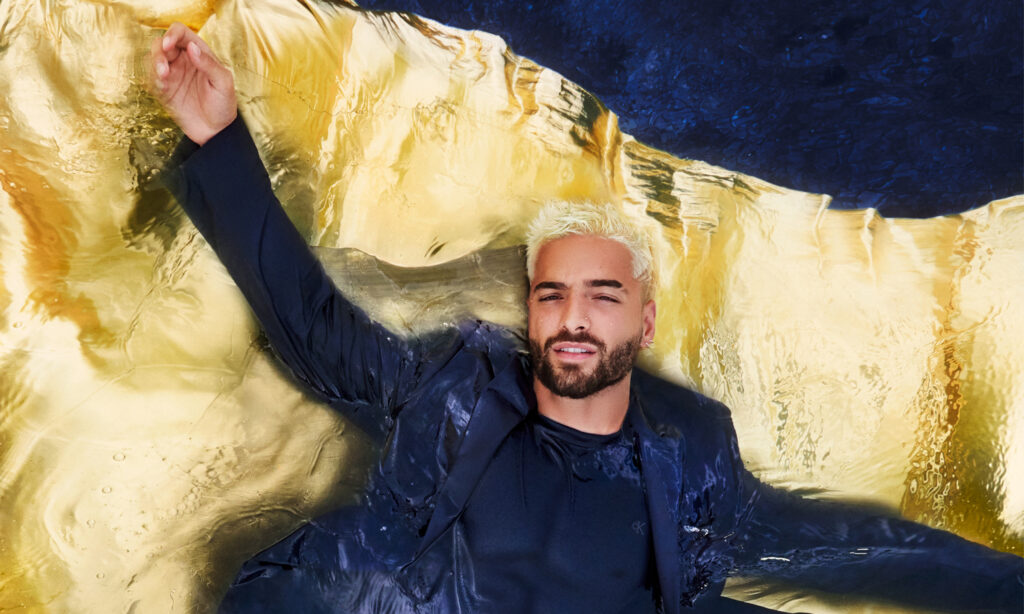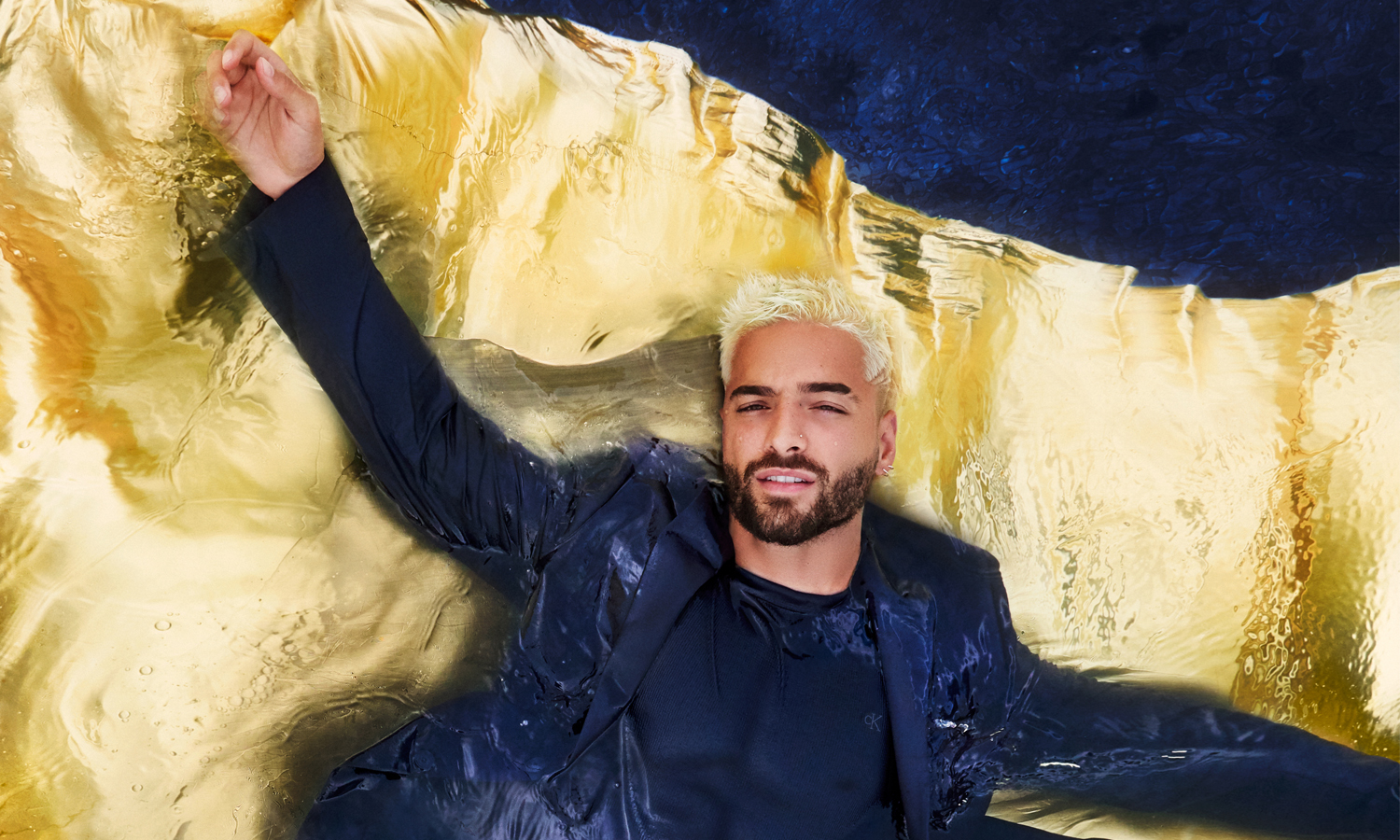From an early age, Maluma exhibited demigod-like behavior. Born in 1994 to Marlli Arias and Luis Londoño, Maluma, f.k.a. Juan Luis Londoño Arias, navigated life in the high-altitude city of Medellín, Colombia, with dauntless ease: He took up soccer at seven, and before long was poised to play pre-professionally. But by his mid-teens, he was no longer content to excel at just one of his country’s beloved pastimes. Instead, Maluma settled on another moon-shot path to stardom: music, namely reggaeton.
As if to stake his success on destiny, he looked to his family tree when forging a stage name: “Maluma” samples the first syllables of his father, mother and sister’s names. Now, just over a decade later, Maluma is the consummate golden boy—not only of his family or Medellín, but of Latin pop at large.
Like a young Hercules in the Disney film’s first act, Maluma can’t seem to lift a finger without outperforming expectations. In 2015, the same year he signed to Sony Music Latin, he became the youngest person to ever occupy both the top and number-two spots on Billboard’s Latin Airplay chart. On Madonna’s latest album, Maluma guested on not one but two tracks, including its flagship single, “Medellín.”
Despite being a creative throughline, Maluma had seldom spent any extended time in his home city since his larger-than-life career took off. So during quarantine, he seized at the chance to reacquaint himself with his Medellín pedigree. Which, by the way, now includes a Noah’s Ark-sized animal farm at his ranch. “I went back to my house in Medellín and I had a lot of time to think and do the music that I really like,” he tells VMAN. “And that it reggaeton.” His new album, Papi Juancho, is the product of that return to form. Here, VMAN talks with Maluma about work, life, and his friends from the animal kingdom.
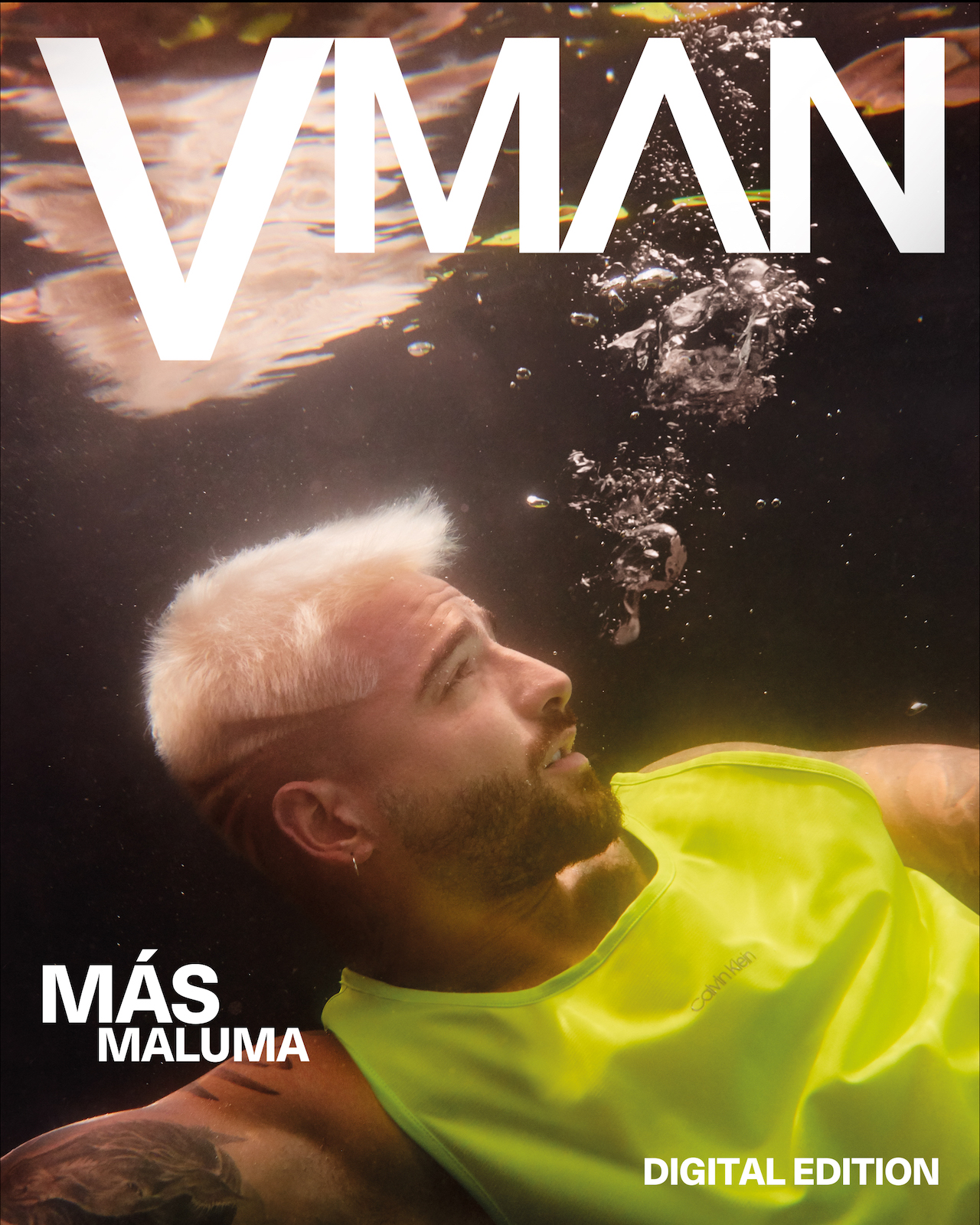
VMAN You have a busy month ahead of you, with your album launch. Are you saving your energy at this point, or are you busy every day, every hour?
M I’m busy every second of my life. But I’m good, there’s a lot of work, and I’m happy about the release of my new album, positive things in my life are happening, my career, so I feel blessed. I feel blessed and I feel good, thank god.
I’m in Miami right now, but I was in Colombia for the first three months of quarantine. I decided to come to Miami to finish my album here. I brought my producer from Colombia, too. Here in Miami we have more opportunities to keep working because in Colombia everything is locked down right now. That’s why I decided to come to the States and keep working.
VMAN When you went back to Colombia, was that your first time there in a while? Or do you manage to go back and forth?
M I always love being in Colombia; that’s home for me. Every time I’ve toured, I wanted to go back to Colombia. In a whole year, I would spend one or two months max in Colombia, which was always a struggle.
VMAN So was this a three month period in Colombia? Was that unusual, given your hectic schedule?
M When I went back to Medellín, I did so many things. I spent time with my family, my animals…I have a farm over there. I love horses and every kind of animal. Also meditating and thinking about a bunch of things—my career, my future. I worked hard to have time for me and myself. It was a very interesting experience to be in Colombia for that long.
VMAN What kinds of animals do you have on the ranch?
M I have seven dogs, 25 horses, I have cows, chickens, sheep…It’s literally like a farm. For me, my farm is a sanctuary. Going there is just a total disconnection with my career, my job, everything. That’s why I wanted to create the ranch. I got my first horse two or three years ago. That was Hercules, and thank God, he’s still alive. He’s a Freesian—a black, beautiful male horse. After that I started getting more horses and cows. I also have Bonnie and Clyde, they are my two Siberian huskies. I got them six years ago and they’re still alive too. They’re all part of my family.
VMAN I love the names of the horses.
M Another one’s called Apollo, another one’s called Zeus. They’re all Greek mythology.
VMAN Cool. Are you interested in Greek mythology?
M I don’t read a lot of Greek mythology, but the names were very powerful to me. All of the horses that I have in the ranch, they look very powerful too and that’s why I wanted to name them that.
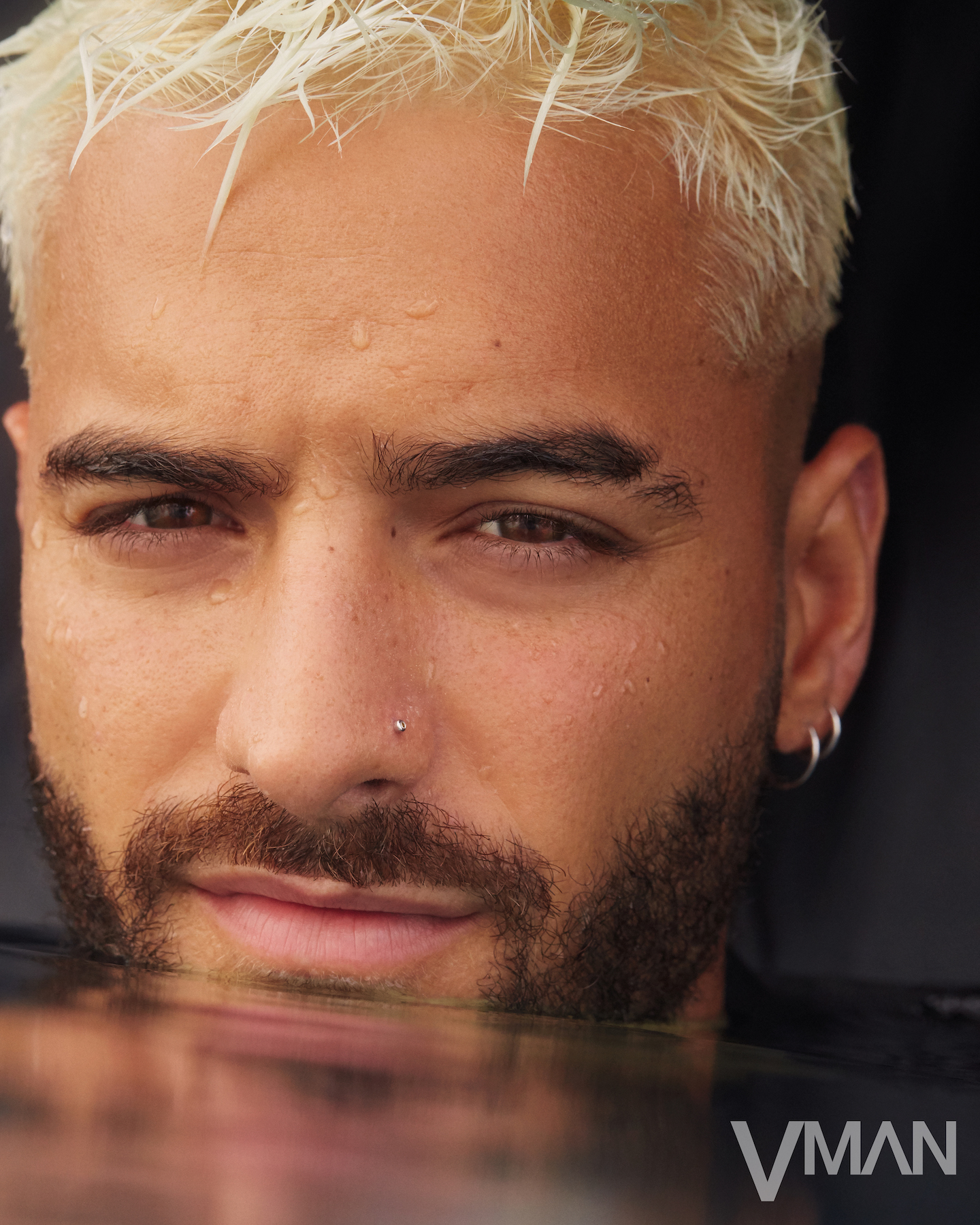
VMAN Speaking of names, the album, Papi Juancho. Is that a nickname? Where does that come from?
M Actually, when I did the first [Calvin Klein] campaign, I had to post something on my Instagram and I was looking for a caption for one of the pictures. In the picture, I was wearing boxers and everything. We were on the plane and I was like, “Yo, I need a caption for this picture.” Then I was like, “Bro, it kind of looks like ‘Papi Juancho.’” It sounded good.
My family, they call me Juancho. Papi sounds kind of nice too, and then I put the caption on the picture, and the comments were all like, ‘Wow, what a great name…whatever it is.’ I started joking with the Papi Juancho thing, and when I was in quarantine in Colombia, I started making the music that I really wanted to make. All of these reggaeton, heavy songs, and I was like, “Papi Juancho sounds like a good name for my new album.” That’s how I created the alter ego or character called “Papi Juancho.” The one that created all of this music. It feels super connected—the name and the music that I have on my album.
VMAN I saw a baby picture on your Instagram, also captioned “Papi Juancho.” Were you born with the same vibe you have now as a fully grown person?
M Yeah, that’s [my] essence, I would say. Of course, the vibe was always there. Since I was a kid, I would perform in front of everybody. I’d sing all of these mariachi songs to my mom, and that was something that my father couldn’t believe…that I was so young but still wanted to do these performances in front of everyone. That’s how they knew that when I grew up, I was going to be a singer or performer. The Papi Juancho vibe has been there since I was a little kid.
VMAN You played soccer before you decided to pursue music. How serious were you about the sport?
M There’s a team in Colombia that is called Atlético Nacional—one of the biggest soccer teams in Colombia. I had the opportunity to play in that team. Not quite the professional team, but almost there. When I was 16, I quit because I went to the studio and fell in love with the music that I was doing. My dad’s dream was for sure always for me to be a soccer player. But oh well. It wasn’t my dream after I went to the studio.
VMAN How long had you been playing?
M I was seven years old.
VMAN Okay. Is that when most people start? Most kids?
M Yeah. In Colombia, the number one sport is soccer, for sure. So, you see these little kids who are five years old training and everything. I did it when I was seven until I was 16. That was when I started.
VMAN Do you ever play soccer recreationally?
M Actually, I have a soccer ball right now in front of me. I like going to the beach and playing with my friends here in Miami.
VMAN So, if my math is correct, you started to pursue music and pretty soon after, you’d gotten some serious attention for it. How did that happen so fast?
M Well, that was because I used to work super hard, since I was 16. I think that everything happened fast because I used to work like crazy. I used to go to high school and then an hour before the school closed, I had to go to different schools to sing my songs. That was my dream career.
I think that was the key, working hard and sharing my music. Social media helped me a lot. When I started my career, there were a lot of things that were getting ready to make my dream come true.
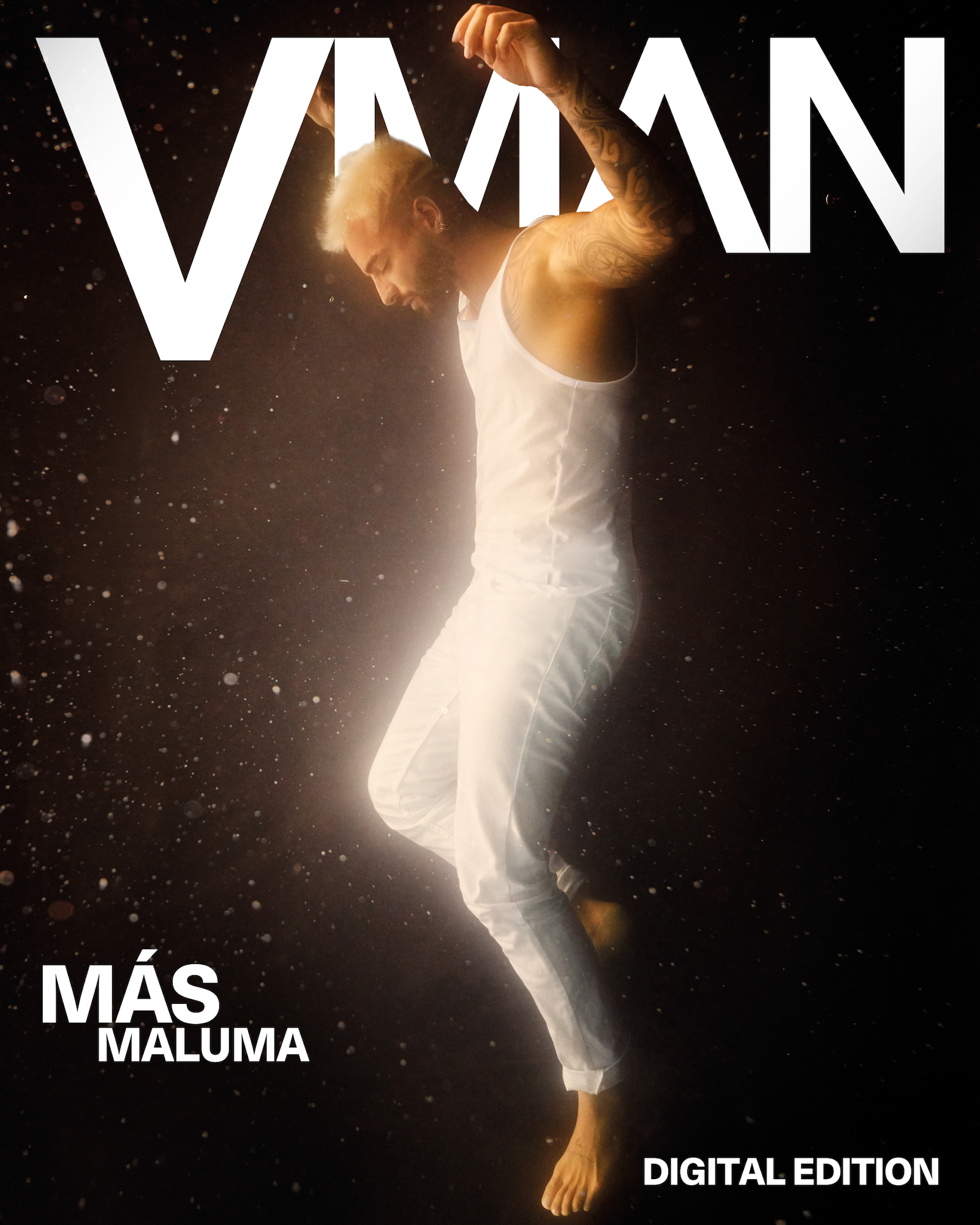
VMAN What kinds of things? What do you mean by that?
M When I started, Twitter was also starting. All of this social media was starting. For me, it was easy to share my music through social media. I started getting known in different places in Latin America and could share my music on different platforms.
I also did a bunch of concerts in 2010. I went to so many different high schools and sang the two songs that I had at that time. I also did the radio station, concerts, and had to work very hard every day to be known in different places in Colombia and Latin America. I put my whole life to my career.
VMAN So you would perform at high schools for people who were around your age, I’m guessing. How was that?
M When I was 16, I had to go perform to other people. Yeah.
VMAN And how was that, was it intimidating at all? How did you develop your stage presence?
M Well, I wasn’t shy, as my family and friends [will tell you]. I could always go in front of anyone and perform. The only thing that I wanted was to shine, I wanted to be someone in life: to be successful and make all of my dreams come true. It was kind of intimidating at the beginning, but I did so many countries that I felt like, at the end of the day, it was natural for me to perform in front of anyone.
VMAN And did you already have Twitter, before you started to promote yourself?
M When I started, I used Twitter and YouTube. Those two were the most important platforms to me. Also Apple Music and Spotify and Amazon Music—those were the platforms that were playing my music at the beginning. Twitter and YouTube were the two most important platforms to be connected with the fans.
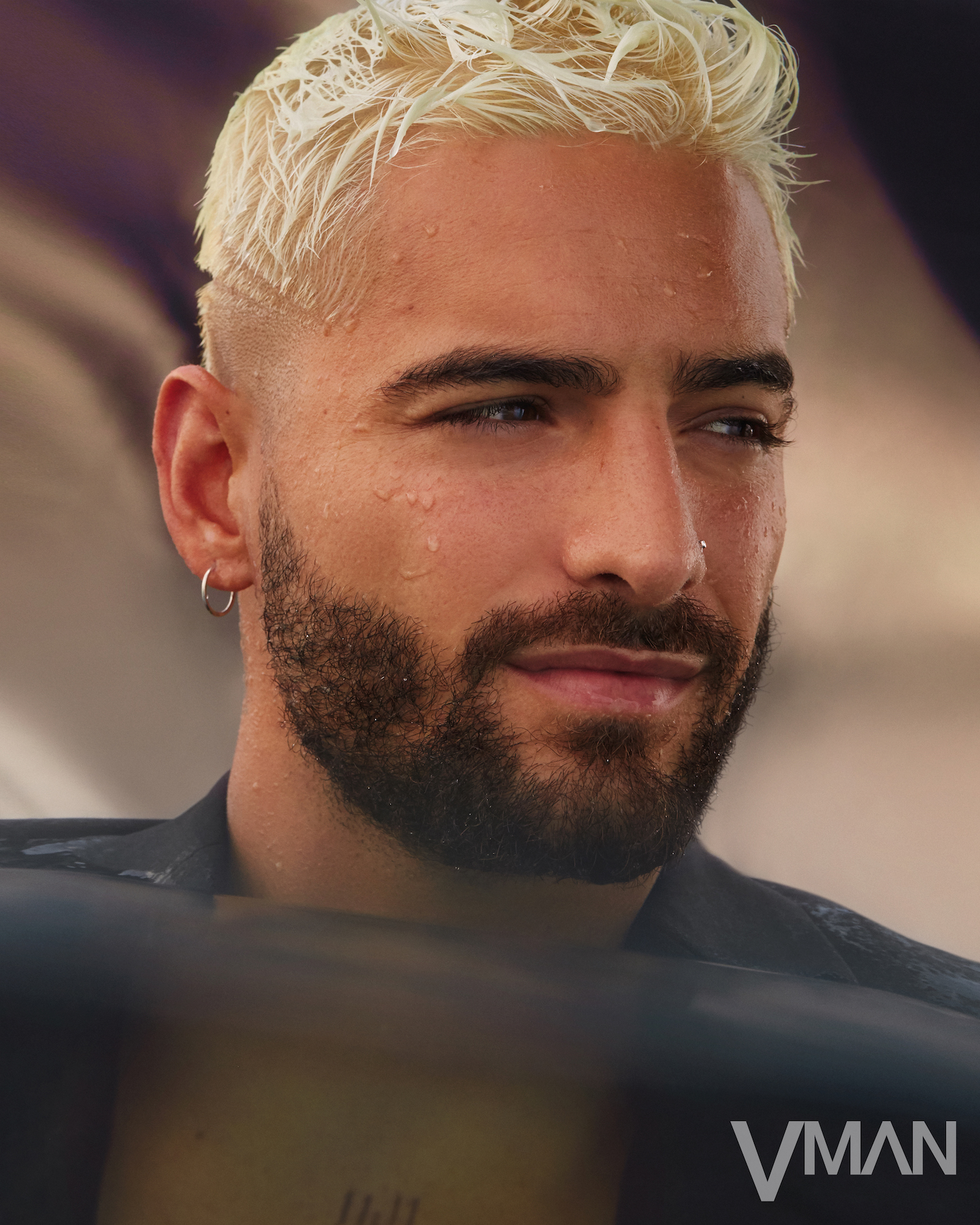
VMAN And was it mostly people in Latin America or a certain region, or did you find that you could reach global audiences on Twitter?
M Twitter was worldwide, so I remember when I was doing “lives,” or Twitter livestreams, I could tell that there were people from different places in the world. My first fans were from Medellín—they were from Colombia. Then, I started growing, and I could see people from Venezuela, Peru, Argentina listening to my music. It started growing fast. Then, I saw people from America. Even if they didn’t understand my songs, they really liked it.
[Eventually] I changed my contract from Sony Music Colombia to Sony Music US Latin. That was what brought me to the States for the first time—to Miami. That’s how my career started developing here, too.
VMAN So, your trip to Miami…Was your first time ever in the States?
M No, my first time was when I was 12 years old. It was a family trip—I came to Orlando, I went to Utah, New York, Los Angeles. We did these family trips, where we’d spend almost a month here. I went back to Colombia, started my career, and then six years later, I came back—this time to work.
VMAN Not to go to Disney World.
M Yeah, it was a different kind of Disney.
VMAN What did you think of the US when you came as a kid? It sounds like you saw different parts of America.
M It was very incredible for me, to be honest. Colombia is more country, with very small cities. When I came to the States and saw the streets, I thought, They’re so big. They were huge. I remember the first time I went to Las Vegas, I saw all of the lights and the limousines and I couldn’t believe it. That those things actually existed.
For me, it was very shocking coming from a small hometown called Medellín to this big huge monster—something that is super massive and big. It was very impressive. I’ve also always loved the culture here. I’ve been a huge fan of hip hop music, R&B, rap, jazz…For me, coming to the states was something that I only saw through TV and movies. Then, I came here and saw how big it was, but that I could [also experience] the culture. That was really nice, too.
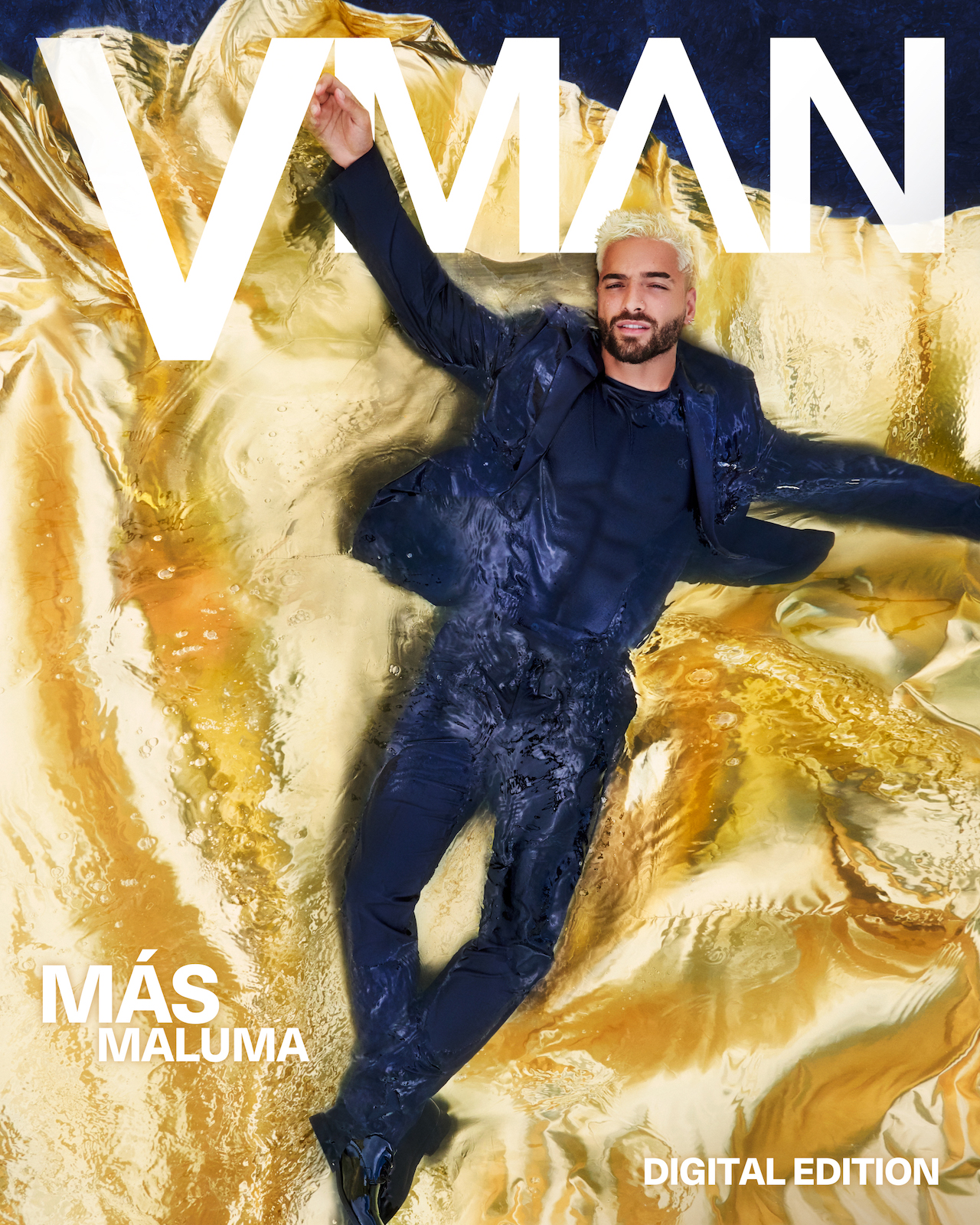
VMAN Have you been to Hawaii? It’s the subject of the album’s first single, after all…
M I’ve never been! My producers were in Hawaii when we decided to make the song.
VMAN Never? I would have assumed that you’re a fan of Hawaii, or surfing culture or something…
M Yeah, yeah, I love surfing! I’ve surfed a couple of times in different places, but never in Hawaii…I hope to, when this quarantine passes. That will be my first trip, once this is all over. Like I told you, before I came to the states, I only saw it through TV or movies. Now that I’ve seen so many pictures of Hawaii, I want to go there.
VMAN Is that part of why you chose it as the lead single? No one can travel there, so it’s a nice image to focus on…Was that deliberate?
M Law of Attraction. I know that pretty soon I’m going to be there. I’m calling it with my mind.
VMAN This is a strange time to be performing. What are your thoughts on performing or promoting an album in this day and age?
M I’m just performing a lot. I can’t wait to go back on tour, but for now, we had the opportunity to perform at the VMAs. I think that people need this kind of thing. If I can heal a little bit through my music, even if people have to watch it from their homes, it’s always an honor. Even without a crowd, at least I’m helping a little bit and sending good energy to people in their houses.
VMAN How do you want people to interpret the album, Papi Juancho?
M I’m very excited because I’ve been working on this album for the whole quarantine, since I had to postpone my tour. I went back to my house in Medellín and I had a lot of time to think and do the music that I really like. I’m really excited because from the first song to the last one, people are going to feel my essence.
This is the music that I like doing. Every song is reggaeton and we have those vibes throughout the whole album. I love different rhythms; I love reggae, hip-hop, R&B, but right now, this album is the music that I really love doing and that is reggaeton.
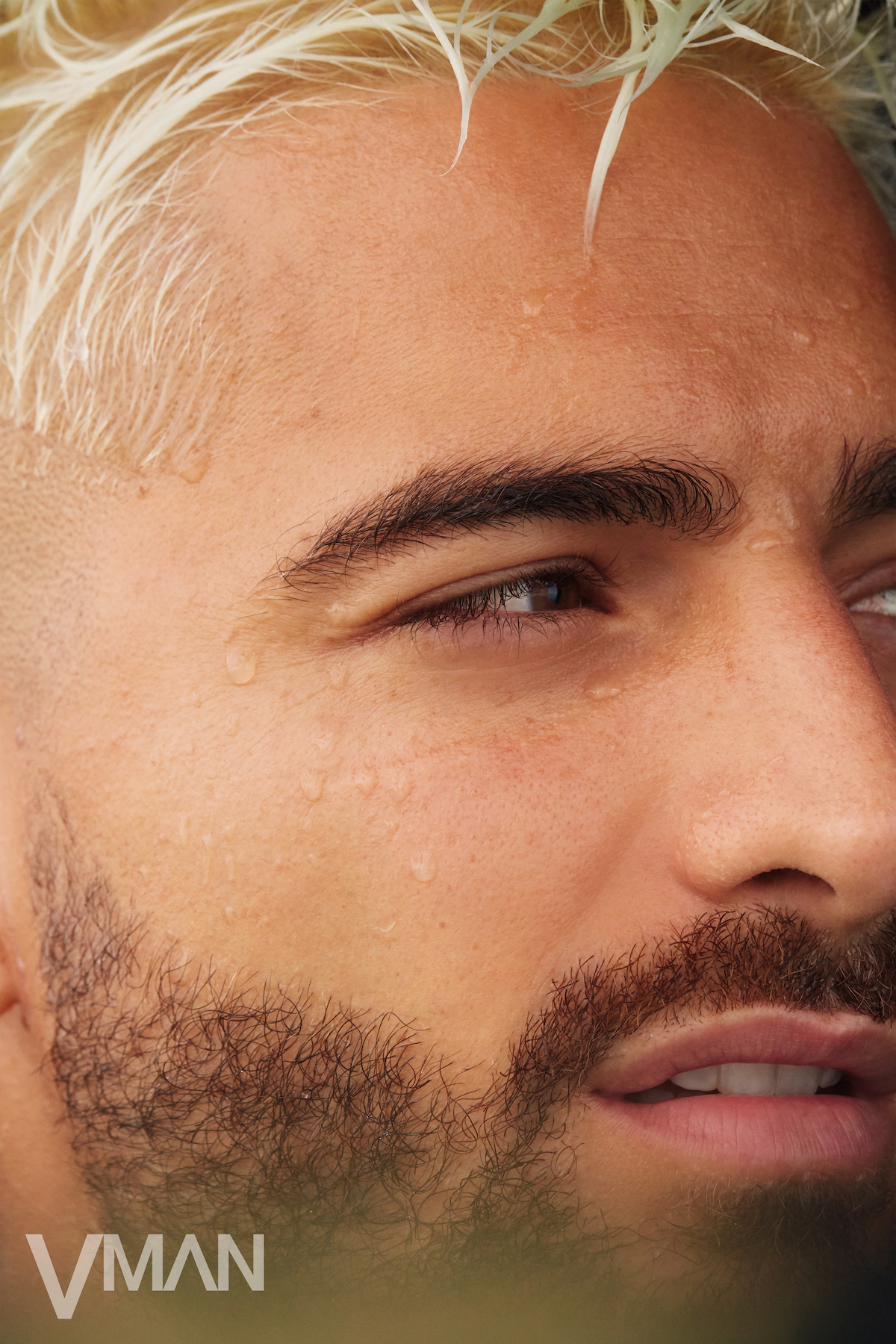
Stylist: Ugo Movi
Make-Up: Bo Champagne
Producer: Danny Cardozo
PA: Jenny Quinn
Digitech: JP Cunningham
Photo Assistants: Flip Patino and Chris Daszynski
Stylist Assistant: Paige Marinelli
Location Team: Sofia Joelsson, Neil Perez, and Patty
Discover More
